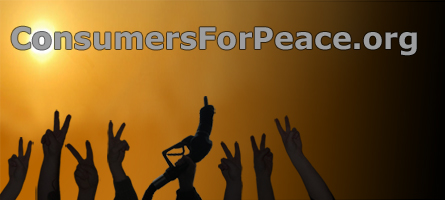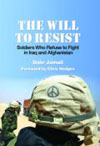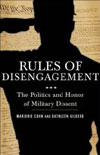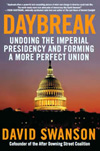Iraq War Challenges Methodists’ Grassroots Unity Church Visit #6
On Sunday, November 18, Gayle Dunkelberger, Margaret Eberle, Ellie Ommani and I attended the 10 a.m. service at Memorial Methodist Church in White Plains, New York, in our campaign to encourage clergy and laity to speak out publically for U.S. withdrawal from Iraq and against attacking Iran.
Our visit was unique in this campaign because we were invited by the Reverend John Collins, Church and World Minister at Memorial Methodist to attend and conduct our bannering during the church service. I asked Reverend Collins to write about the reason for his request, and here are his thoughts:
“When I learned that a group of antiwar activists had been visiting churches to ask ‘Why the Silence?’ about the war in Iraq, I suggested to the Church and World group at Memorial UMC that we consider inviting them to visit Memorial. They liked the idea, and we agreed that we would not announce the visit in advance, in order not to color the response either way. We also agreed that we would invite them to remain after the service to discuss their visit and the war with church members in our ‘Engage’ class.
“As it turned out, I was preaching that Sunday (Rev. Agne was in Georgia, joining the protest against the School of the Americas). The protesters arrived on time (why can’t all our members do that?) and were seated by the ushers. I introduced them at the time set aside for introducing visitors. When I began my sermon, they stood and unfurled their banner. I said we would give them an opportunity to speak at the end of the sermon, and they took their seats.
“About 10 people stayed for the discussion and it was fruitful, although no one who opposed the visit attended.
“Why did we invite the group? First, because we felt that our congregation needed to hear a challenge to the church from ‘outside’ by those opposed to the war in Iraq. Second, after reading reports of earlier visits, I wanted the visitors to experience a welcoming congregation willing to hear their point of view, and I was confident that Memorial would respond in that spirit. Third, I myself am troubled at the seeming silence of the religious community about a war which I believe to be illegal, immoral, a strategic disaster and unChristian. For that reason I welcome any opportunity to stimulate discussion and action on the war in the religious community. We may not be at the point that Germany was when Bonhoeffer and others issued the Barmen Declaration, but we are not far from it. Finally, and this only occurs to me as an afterthought, my grandmother, the wife of a Methodist pastor in North Dakota at the turn of the last century, used to visit saloons on a Saturday night to admonish men to go home to their families. Perhaps turnabout is fair play – it is time for the world to admonish the church.”
Before discussing the service and the conversation that we had with parishioners afterward, it is important to note that, as indicated by the above, Memorial Methodist is an unusual church in the degree that its pastors and many parishioners are active in peace and justice initiatives.
Memorial’s website, for example, may be unique in offering Yahoo news headlines along with regular church announcements, which include notice of a program entitled “Unpackaging Christmas” that “explores alternatives to the consumerism associated with the holiday.” The website also provides information on activities organized by Weschester People’s Action Coalition (WESPAC) a county-wide peace and justice organization, including its annual crafts fair to be held at the church November 24.
Sunday’s bulletin noted that the pastor, the Rev. Joe Agne was not present for that day’s service because he was singing with the Walkabout Clearwater Chorus at a protest at the School of Americas, “trying to stop torture throughout Latin America”. This was the weekend of the annual protest at the U.S. military training center for Latin America military forces formerly known as the School of the Americas, now renamed Western Hemisphere Institute for Security Cooperation as part of effort to blunt the campaign to close it down.
Recently, Memorial Methodist received local press attention for permitting the anti-war group NoWarWestchester to plant small white flags on its lawn, one for each U.S. military person killed in the Iraq War.
Memorial is a large church stone church, built in 1958 in a modern design intended to attract people moving into the post-World War II, newly expanding suburbs. There were about 70 people attending on this Sunday, with about 6 of these African-American. The morning was slightly overcast, a little chilly, and with winter setting in, the church, with its honey-colored natural wood interior, had the feeling of beginning to be a refuge from the changing seasons.
The atmosphere of the church was relaxed, with the service conducted just in front of the first row of pews and with the large space beyond into the choir stalls at front of the church unused. Reverend Collins and the other leaders of the service wore simple green stoles over their street clothes, conducting the service in almost a conversational way.
The service began with a hymn and responsive reading and in the Joys and Concerns portion, Reverend Collins announced that the Council of Bishops of the United Methodist Church had just published a ”Resolution on the War in Iraq” (November 9) that calls on the President and the Congress to, among other things:
“Begin immediately a safe and full withdrawal of all military personnel from Iraq, with no additional troops deployed; and
“Declare that there will be no permanent military bases in Iraq.”
(The full resolution appears at the end of this report.)
After more announcements, about a dozen children came forward for the Children’s Chat in which they heard a story told by parishioner Varghese Leju Mathew with the message of “how many times we miss God’s blessings because they are not packaged as we expected.”
After the singing of the anthem by the eight-member choir “God So Loved the World” and just before the morning’s sermon, we stood up at the right wall of the church with a banner that read:
3,800+ U.S. Soldiers Killed - Thousands Wounded
1 Million Iraqis Killed - Millions Displaced
Much of Iraq and Its Culture Have Been DESTROYED
The U.S. has spent $456 billion - $3 Billion from Westchester (County)
The banner had been changed from the banner we have been using to reflect the increase in U.S. troops killed.
Reverend Collins said he had not known there would be a statement by the Methodist bishops, which he had just read, and he asked us to be seated and said we would have an opportunity to speak during the service.
He then delivered a sermon based on the story of the tax collector who asked for forgiveness, compared to the pride of the Pharisee. “I see a nation (the U.S.) that often sees itself as better than other nations,” he said, and then he encouraged the congregation to “Live our faith so that it doesn’t show,” that is quietly and not pridefully.
He said this can be done through the simple act of listening thoughtfully to others. It can be done through action, as people who ran the “Underground Railroad” in slavery times and who did so unknown to others, many unrecorded in history. And it can be done through giving, not only in terms of money but in time and in giving forgiveness.
Reverend Collins then offered us a chance to explain why we had come to the church with the banner.
Gayle started by noting it was “the first time we’ve ever been invited” to a church to raise the banner, and she said Memorial is “a very unique church.” She said that she has found that regardless of where she has demonstrated it is common for people to complain that the demonstration “is not in the appropriate place.” But, she said, she is thankful that others have protested the war in unusual places, such as Michael Moore and Sally Field at the Academy Awards ceremonies and, recently, women at a bridge tournament who were criticized by colleagues for simply displaying a sign saying they did not vote for President Bush.
Concluding, she said that U.S. troops invade places of worship in Iraq, weddings, homes, bedrooms, “there’s nothing that’s sacred.”
A woman in the back of the church then asked if we would display the banner again because she was too far away to read it the first time.
Ellie said that she thought Memorial did not need our bannering, given their work for peace and justice. But, she said, her husband is Iranian, and she at least wanted to share her concern that the U.S. is planning for a possible attack on Iran and that “my relatives will be under the bombs.”
Referring to the message of forgiveness in the sermon, Ellie said: “I have to be honest, I’m having a hard time forgiving our leaders for planning war against Iran.”
I was the last person to speak, and I began by saying that the U.S. political system is not responding to the need to end the war, that we felt we had to go outside normal channels of communication and that churches are institutions that deal with issues of morality. Churches have democratic systems of organization, and we are hoping, I continued, that parishioners will urge clergy to be more publically outspoken, “to act inappropriately” to end the war.
I acknowledged that the Methodist bishops had passed the resolution noted earlier in the service, but, I said, this was the first time I had heard of it, and I said I hoped they would push the resolution so hard that there would be no question about when and where they made their statement. I was surprised that my conclusion drew some applause from the congregation.
After the offering, and prayers, we sang the concluding hymn “Lead On, O Cloud of Presence” and then sang the Song of Peace, which ends with “Go in peace and the peace of God be with you alway.”
Reverend Collins had told the congregation that we would be available to talk with parishioners after church in the chapel, but we went to get coffee first in the “Fireside Room”. Unlike other after-church experiences that we’ve had, no one came over to speak with us in the social room.
However, we were joined by about ten people, including Reverend Collins, when we went into the chapel.
The conversation among us lasted nearly an hour, and the principal topic was whether and how Memorial, and churches generally, can take a strong position on the war or similar issues and still maintain unity.
The activism of Clergy and Laity Concerned during the Viet Nam War was mentioned, and Reverend Collins asked: “Is it possible for a local church to make a witness on an issue like this…is there a reason churches remain silent?”
A woman who appeared to be from India, in her 40’s, said that Jesus “challenged the evils of the political system of his time” and that she had Muslim friends who speak out in mosques against the war.
A man in his 40’s asked: “Do we risk alienating people, and how do we reach out to them?’ A woman in her 50’s that some people within the parish feel alienated, and later she said that a few people had been talking in the social room about the bannering and that one woman had said the bannering was very offensive and that she would “support it (the church) more” if this kind of thing didn’t happen.
The woman who reported on this said that there are people who may be supportive on issues like the Iraq War but do not want politics introduced into a worship service. Someone said that there is a need “to reach out to these people.”
Later in the conversation, the woman who had spoken about Jesus challenging the political system noted that Pope John Paul II had visited the Wailing Wall in Jerusalem (2000) and prayed for forgiveness for transgressions of Christians against Jews, which has been interpreted to mean particularly for the silence of the Church during the Holocaust. She said that while the Iraq War might not be on the scale of the Holocaust: “It could be argued that the Holocaust would never have reached such dimensions had the Church spoken out.”
At point in earlier in the discussion, a man who appeared to be in his 60’s said “I have a confession to make”. It was, he said, that he had been “grumbling” about what the church should be doing when he could join a group working on his concerns and act directly. “I need to stop,” he said, “using the church as my excuse for a personal cop-out.”
The session concluded with a woman in her 60’s saying that there needed to be a forum for discussion on war.
When we left the church, we were extremely pleased with the depth of our conversation, which was unique in terms of the numbers of people who met with us after church and their willingness to consider basic issues for the church that are raised by the Iraq War. And we were particularly touched by the man who was willing to address his personal responsibility in his “confession.”
The incident most striking to me was when the man Nick mentioned made “a confession”. I think he was truthful, and I also think he was using great people skills and generous language meant to gratify us for having a little spunk in our church visits. I do not delude myself to think for a minute that he was suddenly struck by our magnificence. He did not have a grand ephiphany to make a 180 degree turn. I’m sure he was basically on the same page all along. The reality is likely closer to: one brain cell moved one fraction of a millimeter, clicked and said “I’ve been meaning to make more noise, if these guys can, so can I.” It is seldom that one gets instant feedback or any feedback. That was a nice gift.
When we act we change ourselves and the world, one brain cell at a time.
________
UNITED METHODIST COUNCIL OF BISHOPS RESOLUTION
Whereas, the Council of Bishops of the United Methodist Church, meeting Nov. 9 at Lake Junaluska, N.C., is committed to make disciples of Jesus Christ for the transformation of the world; and
Whereas, the Lord Jesus Christ, the Prince of Peace, calls his followers to be peacemakers (Matt. 5:9); and
Whereas, “We believe war is incompatible with the teachings and example of Christ” (Book of Discipline 2004. Par. 165.C); and
Whereas, the cost of the war in Iraq as of Nov. 7, 2007 has been the lives of 3,843 members of the U.S. military, 171 members of the United Kingdom military, 132 members of the other Coalition military, 28,385 U.S. military wounded, and the lives of at least 76,241 Iraqi civilians; and
Whereas the war in Iraq has displaced 2 million persons and forced another 2 million persons into refugee status;
Whereas, every day the war continues more soldiers and innocent civilians are killed with no end in sight to the violence, bloodshed and carnage;
NOW, THEREFORE, THE COUNCIL OF BISHOPS calls on the President and Congress of the United States and the leaders of all the nations in the Coalition Forces:
- To begin immediately a safe and full withdrawal of all military personnel from Iraq, with no additional troops deployed;
- To declare that there will be no permanent military bases in Iraq;
- To increase support for veterans of the Iraq war and all wars;
- To initiate and give strong support to a plan for the reconstruction of Iraq; with high priority given to the humanitarian and social needs of the Iraqi people, such as healthcare, education and housing;
FURTHER, THE COUNCIL OF BISHOPS calls United Methodist people throughout the world:
- To pray for peace and to have regular prayer vigils for congregations and communities;
- To care for all impacted by the war, including combatants and noncombatants by honoring the dead, healing the wounded and calling for the end of the war;
- To be peacemakers by word and deed that we may be called the children of God.





